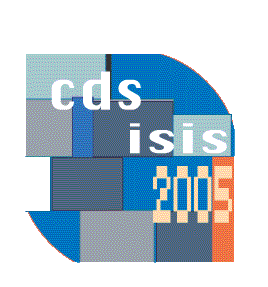After twenty years the author, that introduced Mini-micro CDS/ISIS in Portugal, explains the reasons why at that time it was choosed as the software for Portuguese Libraries Catalogues.
Portugal had no experience on such subject a nd only a few private companies used computers for managing their information departments. A national project based on National Library was pursued in order to create a National Bibliographic Database that later was named Porbase. Public and Academic libraries used printed cards for their catalogues and normalization was not felt as a mandatory issue.
Parameterization of Mini-Micro CDS/ISIS allowed the availability of the first worldwide implementation of UNIMARC with a Portuguese lang uage version which was distributed for more than 500 libraries in Portugal. With it at National Library all retrospective cataloguing for Porbase was done while other libraries automated their catalogues and cooperate with National bibliographic database achieving near half a million records in 1988.
With the automation experienced on that decade some commercial companies appeared to promo te several solutions, either using Pascal CDS/ISIS or foreign commercial software with different databases. Acquisitions, Serial, Loans and Thes aurus were some of the modules introduced to complement catalogues.
After all these developments, including the ones became possible with ISISDLL, three companies remain in Portugal promoting solutions born from CDS/ISIS – BIBLIOBASE, DOCBASE and PORBASE.
20 years after, the actual situation in Portugal is very different and WINISIS is not known neither used. Reasons for such situation are introduced and presented some learnings from it that will be used to argue about possible future trends and challenges that world community would pursue to address a new development framework for WINISIS.

